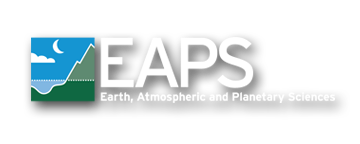Planetary Lunch Seminar – Megan Mansfield (University of Arizona)
Chemical compositions and thermal structures of hot Jupiters
Abstract: Transiting hot Jupiters are compelling targets for exoplanet observations because their high signal-to-noise allows precise atmospheric characterization. In this talk, I will discuss two methods for understanding the atmospheres of hot Jupiters. First, I will present a population study of hot Jupiter secondary eclipse spectra observed with the Hubble Space Telescope (HST). We compute the degree of absorption or emission observed in their emergent spectra by quantifying their deviation from a blackbody in a color-magnitude-type plot. From this population study we propose that the spectra of hot Jupiters can be explained through compositional diversity in their atmospheres.
While this study suggests that hot Jupiters may have modest variations in their atmospheric abundances, the low resolution and limited wavelength coverage of HST mean that in most cases it can only measure the atmospheric abundance of a single gas, water. Recently, the method of high-resolution cross-correlation analysis has emerged as an alternative way to precisely measure the abundances of a variety of species in exoplanet atmospheres using ground-based telescopes. In the second part of my talk, I will present the first results from a large program to measure high-resolution transmission spectra of 11 giant exoplanets using the IGRINS instrument on Gemini-S. I will describe the goals of this ongoing program and show first results from a high-resolution transit of the ultra-hot Jupiter WASP-76b. I will present measurements of the abundances of key molecules, including water, CO, and OH, in the atmosphere of WASP-76b and use these measurements to precisely constrain its overall metallicity and C/O ratio. Finally, I will discuss synergies between these high-resolution, ground-based observations and upcoming exoplanet observations with the James Webb Space Telescope.
About this Series: The MIT Planetary Lunch Seminar [PLS] is a weekly seminar series organized within the EAPS department. Colloquia topics span the range of research interests of the department’s planetary sciences research program. The seminars take place on Tuesdays from 12:30–1:30 pm, unless otherwise noted (term-time only). Speakers include members of the MIT community and visitors. Talks are intended to appeal to graduate students, postdocs, research scientists, and faculty with a background in planetary science. Contact: planetary-org@mit.edu.



